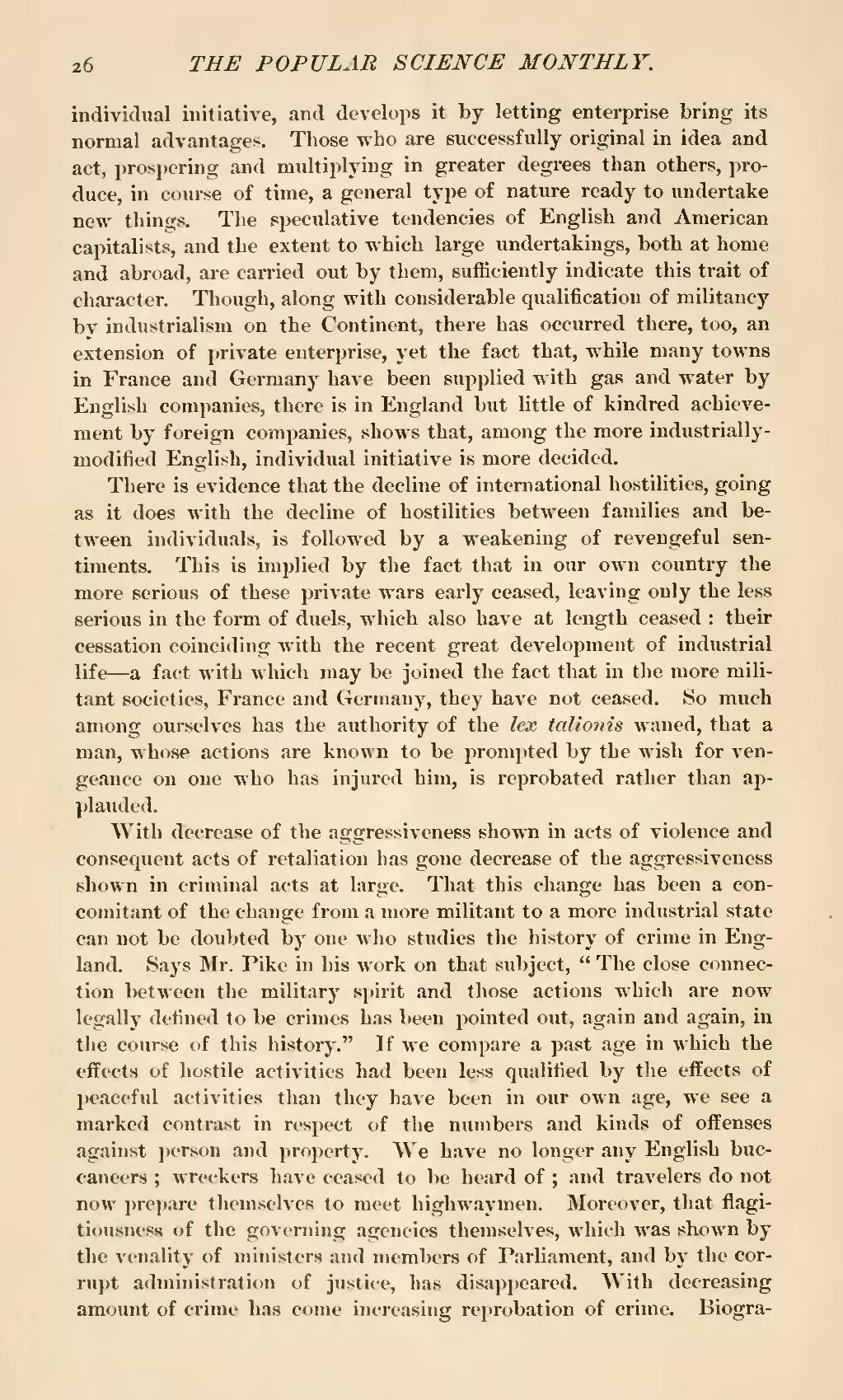individual initiative, and develops it by letting enterprise bring its normal advantages. Those who are successfully original in idea and act, prospering and multiplying in greater degrees than others, produce, in course of time, a general type of nature ready to undertake new things. The speculative tendencies of English and American capitalists, and the extent to which large undertakings, both at home and abroad, are carried out by them, sufficiently indicate this trait of character. Though, along with considerable qualification of militancy by industrialism on the Continent, there has occurred there, too, an extension of private enterprise, yet the fact that, while many towns in France and Germany have been supplied with gas and water by English companies, there is in England but little of kindred achievement by foreign companies, shows that, among the more industrially modified English, individual initiative is more decided.
There is evidence that the decline of international hostilities, going as it does with the decline of hostilities between families and between individuals, is followed by a weakening of revengeful sentiments. This is implied by the fact that in our own country the more serious of these private wars early ceased, leaving only the less serious in the form of duels, which also have at length ceased: their cessation coinciding with the recent great development of industrial life—a fact with which may be joined the fact that in the more militant societies, France and Germany, they have not ceased. So much among ourselves has the authority of the lex talionis waned, that a man, whose actions are known to be prompted by the wish for vengeance on one who has injured him, is reprobated rather than applauded.
With decrease of the aggressiveness shown in acts of violence and consequent acts of retaliation has gone decrease of the aggressiveness shown in criminal acts at large. That this change has been a concomitant of the change from a more militant to a more industrial state can not be doubted by one who studies the history of crime in England. Says Mr. Pike in his work on that subject, "The close connection between the military spirit and those actions which are now legally defined to be crimes has been pointed out, again and again, in the course of this history." If we compare a past age in which the effects of hostile activities had been less qualified by the effects of peaceful activities than they have been in our own age, we see a marked contrast in respect of the numbers and kinds of offenses against person and property. We have no longer any English buccaneers; wreckers have ceased to be heard of; and travelers do not now prepare themselves to meet highwaymen. Moreover, that flagitiousness of the governing agencies themselves, which was shown by the venality of ministers and members of Parliament, and by the corrupt administration of justice, has disappeared. With decreasing amount of crime has come increasing reprobation of crime. Biogra-
